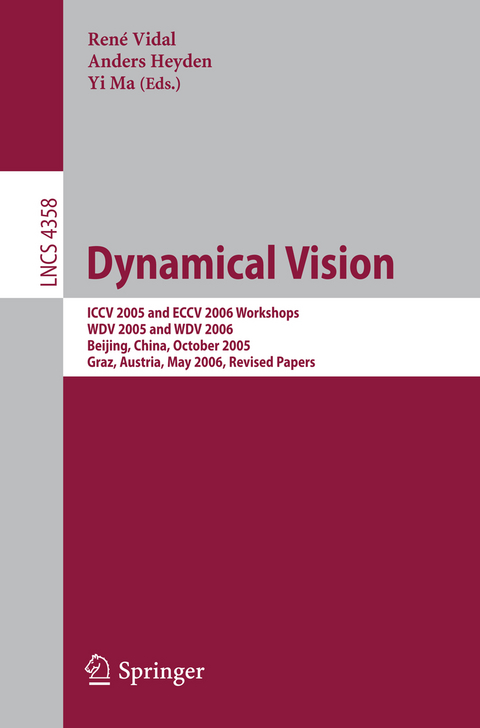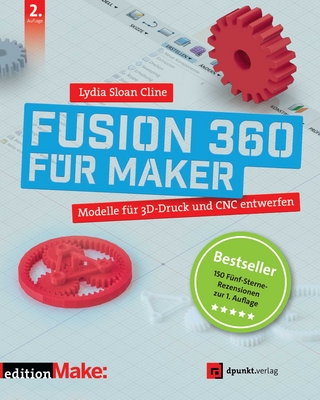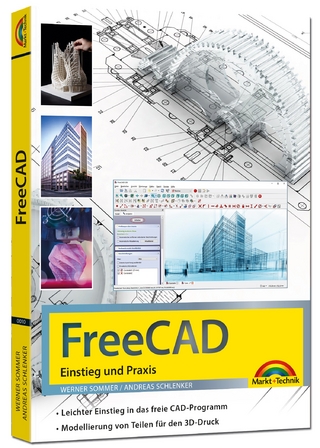
Dynamical Vision
Springer Berlin (Verlag)
978-3-540-70931-2 (ISBN)
Motion Segmentation and Estimation.- The Space of Multibody Fundamental Matrices: Rank, Geometry and Projection.- Direct Segmentation of Multiple 2-D Motion Models of Different Types.- Motion Segmentation Using an Occlusion Detector.- Robust 3D Segmentation of Multiple Moving Objects Under Weak Perspective.- Nonparametric Estimation of Multiple Structures with Outliers.- Human Motion Analysis, Tracking and Recognition.- Articulated Motion Segmentation Using RANSAC with Priors.- Articulated-Body Tracking Through Anisotropic Edge Detection.- Homeomorphic Manifold Analysis: Learning Decomposable Generative Models for Human Motion Analysis.- View-Invariant Modeling and Recognition of Human Actions Using Grammars.- Dynamic Textures.- Segmenting Dynamic Textures with Ising Descriptors, ARX Models and Level Sets.- Spatial Segmentation of Temporal Texture Using Mixture Linear Models.- Online Video Registration of Dynamic Scenes Using Frame Prediction.- Dynamic Texture Recognition Using Volume Local Binary Patterns.- Motion Tracking.- A Rao-Blackwellized Parts-Constellation Tracker.- Bayesian Tracking with Auxiliary Discrete Processes. Application to Detection and Tracking of Objects with Occlusions.- Tracking of Multiple Objects Using Optical Flow Based Multiscale Elastic Matching.- Real-Time Tracking with Classifiers.- Rigid and Non-rigid Motion Analysis.- A Probabilistic Framework for Correspondence and Egomotion.- Estimating the Pose of a 3D Sensor in a Non-rigid Environment.- A Batch Algorithm for Implicit Non-rigid Shape and Motion Recovery.- Motion Filtering and Vision-Based Control.- Using a Connected Filter for Structure Estimation in Perspective Systems.- Recursive Structure from Motion Using Hybrid Matching Constraints with Error Feedback.- Force/Vision Based Active Damping Control of Contact Transition in Dynamic Environments.- Segmentation and Guidance of Multiple Rigid Objects for Intra-operative Endoscopic Vision.
| Erscheint lt. Verlag | 1.2.2007 |
|---|---|
| Reihe/Serie | Image Processing, Computer Vision, Pattern Recognition, and Graphics | Lecture Notes in Computer Science |
| Zusatzinfo | IX, 329 p. |
| Verlagsort | Berlin |
| Sprache | englisch |
| Maße | 155 x 235 mm |
| Gewicht | 1070 g |
| Themenwelt | Informatik ► Grafik / Design ► Digitale Bildverarbeitung |
| Informatik ► Theorie / Studium ► Künstliche Intelligenz / Robotik | |
| Schlagworte | 3D • articulated motions • augmented reality • Cognition • Dynamical Models • dynamical scene analysis • dynamical textures recognition • Hardcover, Softcover / Informatik, EDV/Informatik • HCI • HC/Informatik, EDV/Informatik • Human-Computer interaction • human motion • hybrid motion models • learning • Localization • mapping • Modeling • motion tracking • non-rigid dynamics • object tracking • Segmentation • stochastic models • Textur • video analysis • vision-based control |
| ISBN-10 | 3-540-70931-2 / 3540709312 |
| ISBN-13 | 978-3-540-70931-2 / 9783540709312 |
| Zustand | Neuware |
| Haben Sie eine Frage zum Produkt? |
aus dem Bereich


